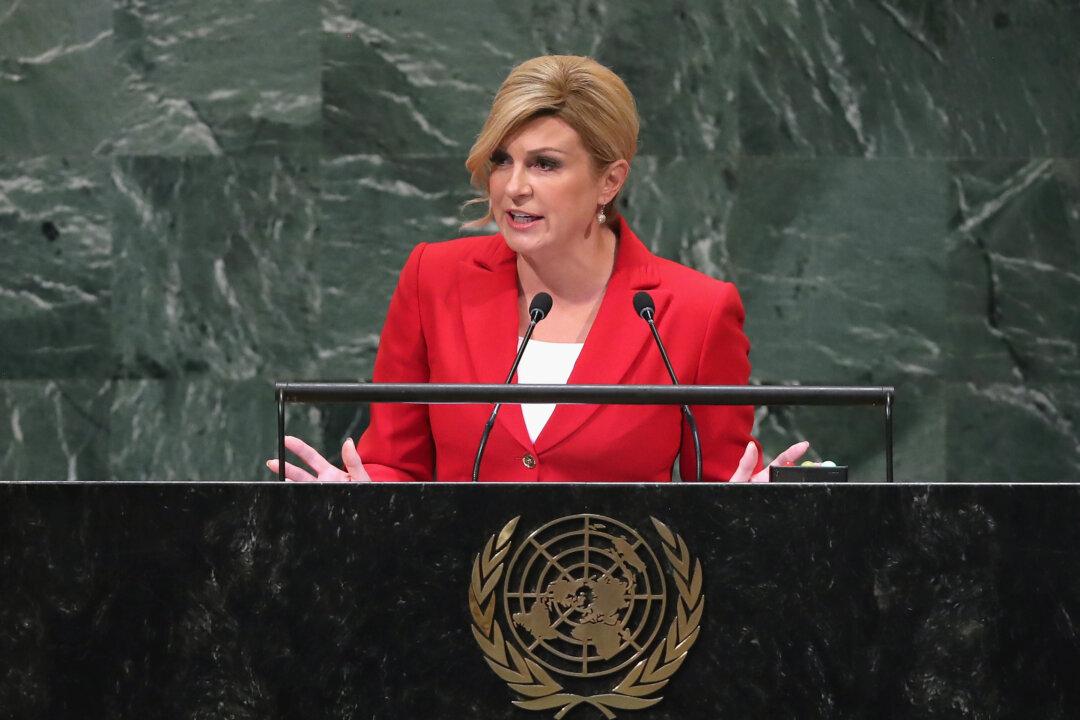Croatia said that it will not sign the United Nations’ Global Compact for Migration. The country joins a growing number of countries that have not signed the agreement, including the United States, Hungary, and Austria.
In a statement regarding the Global Compact for Migration (GCM), Croatian President Kolinda Grabar-Kitarovic wrote: “Be assured I will not sign the ‘Marrakesh Agreement,'” Croatian journalist Velimir Bujanec reported on Oct. 31.




